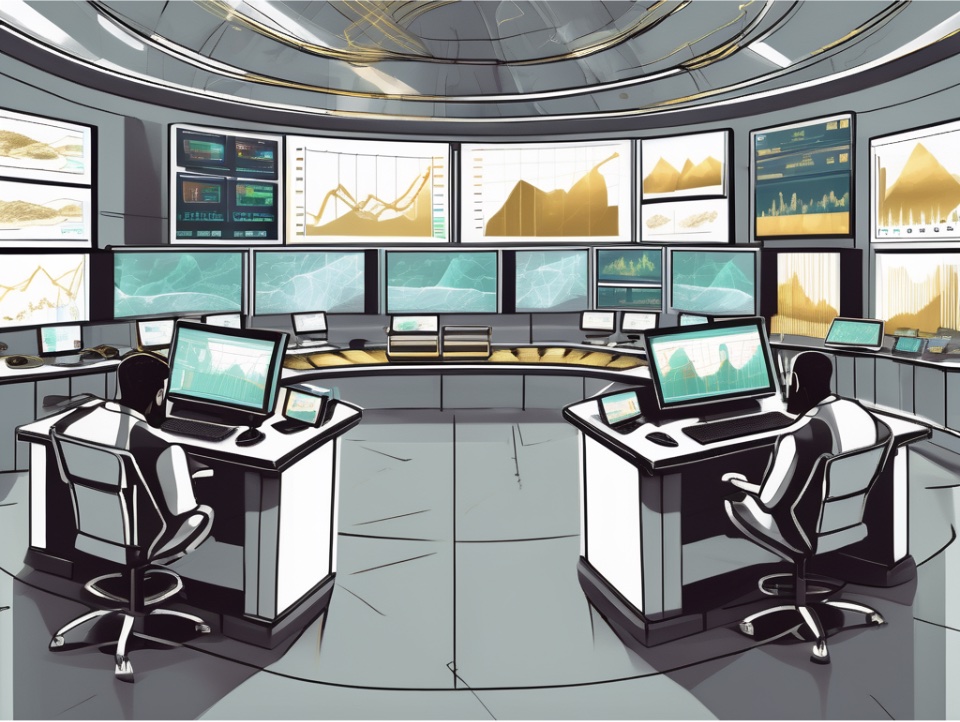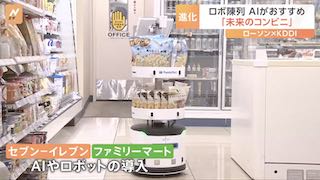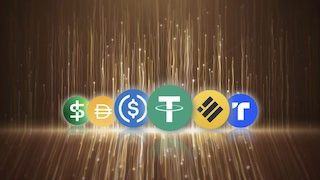May 19 (News On Japan) - The use of artificial intelligence (AI) in commodity trading has surged in recent years, revolutionizing the way traders analyze markets, make decisions, and execute trades.

With its ability to process vast amounts of data and detect patterns that humans may miss, AI is transforming the commodity trading landscape. In this article, we will delve into the various aspects of AI in commodity trading, exploring its definition, its impact on trading efficiency, the challenges and solutions in implementing AI, and the future possibilities it holds.
Understanding AI and Its Role in Commodity Trading
Before diving into the specifics, it is essential to define what artificial intelligence actually means. AI refers to the simulation of human intelligence in machines that are trained to think and learn like humans. In the context of commodity trading, AI algorithms are designed to analyze data, identify trends, and make predictions about future market movements.
Artificial intelligence encompasses various techniques including machine learning, natural language processing, and computer vision. These techniques enable machines to understand, interpret, and respond to human language, analyze images and videos, and learn from historical data to make informed decisions. Machine learning, a subset of AI, allows systems to automatically improve their performance on a task through exposure to data, without being explicitly programmed.
Defining Artificial Intelligence
Artificial intelligence encompasses various techniques including machine learning, natural language processing, and computer vision. These techniques enable machines to understand, interpret, and respond to human language, analyze images and videos, and learn from historical data to make informed decisions.
Natural language processing (NLP) is another crucial aspect of AI that focuses on enabling machines to understand, interpret, and generate human language. By utilizing NLP, AI systems can analyze text data from sources such as news articles, social media posts, and financial reports to extract valuable insights and sentiment analysis, which can be highly beneficial in commodity trading.
The Intersection of AI and Commodity Trading
The potential of AI in commodity trading lies in its ability to process vast amounts of data and extract valuable insights. By analyzing historical trading data, AI algorithms can identify patterns and trends, enabling traders to make more accurate predictions about future price movements. Additionally, AI can quickly interpret news articles, economic reports, and social media sentiment to gauge market sentiment and assess potential trading opportunities.
Computer vision, another component of AI, enables machines to interpret and understand the visual world. In commodity trading, this technology can be utilized to analyze charts, graphs, and other visual data to identify patterns and anomalies that may not be apparent to human traders. By combining machine learning, NLP, and computer vision, AI systems can provide traders with a comprehensive analysis of market conditions and potential trading opportunities.
The Impact of AI on Commodity Trading Efficiency
One of the key benefits of AI in commodity trading is its ability to enhance trading efficiency. Speed and accuracy are crucial in the fast-paced world of commodity trading, and AI algorithms excel in both aspects.
Speed and Accuracy in Trading
AI-powered trading systems can analyze vast amounts of data in real-time, enabling traders to make split-second decisions. By automating the trading process and eliminating human errors, AI algorithms can execute trades faster and with greater accuracy. This not only reduces costs but also minimizes the risk of human bias affecting trading decisions.
Predictive Analysis and Market Trends
Another area where AI excels in commodity trading is predictive analysis. By analyzing historical data and market trends, AI algorithms can identify patterns and correlations that may not be apparent to human traders. This allows traders to make more informed decisions and capitalize on market opportunities before they become evident to others.
Challenges and Solutions in Implementing AI in Commodity Trading
While AI offers numerous benefits in commodity trading, it also poses certain challenges that need to be addressed for successful implementation.
Overcoming Data Privacy Concerns
One of the primary concerns surrounding AI in commodity trading is data privacy. AI algorithms rely on vast amounts of historical trading data to make accurate predictions. However, this data often contains sensitive information that traders may be reluctant to share. Implementing robust data protection measures and ensuring compliance with data privacy regulations is crucial to address this challenge.
Addressing AI Bias and Inaccuracy
Another challenge in implementing AI in commodity trading is the potential for bias and inaccuracy. AI algorithms learn from historical data, which may contain biases and inaccuracies. To mitigate this, it is essential to have a diverse and unbiased training dataset. Ongoing monitoring and evaluation of AI algorithms are also necessary to identify and rectify any biases or inaccuracies that may arise.
The Future of AI in Commodity Trading
The future of AI in commodity trading is full of exciting possibilities. As technology continues to advance, new AI technologies are emerging that promise to revolutionize how traders analyze and act on market information.
Emerging AI Technologies in Trading
One emerging AI technology in commodity trading is natural language processing (NLP). NLP algorithms can analyze news articles, earnings reports, and social media sentiment to assess market sentiment and identify potential trading opportunities. Additionally, advancements in machine learning and deep learning algorithms, including the speculative developments in Quantum AI, are making AI even more adept at analyzing complex market data and providing future predictions with greater accuracy.
Potential Growth and Opportunities
The integration of AI in commodity trading is expected to continue growing in the coming years. As AI algorithms become more sophisticated and capable of analyzing diverse sources of information, traders will have access to unprecedented insights and opportunities. The use of AI in risk management, trade execution, and portfolio optimization is also expected to increase, further enhancing trading efficiency and profitability.














